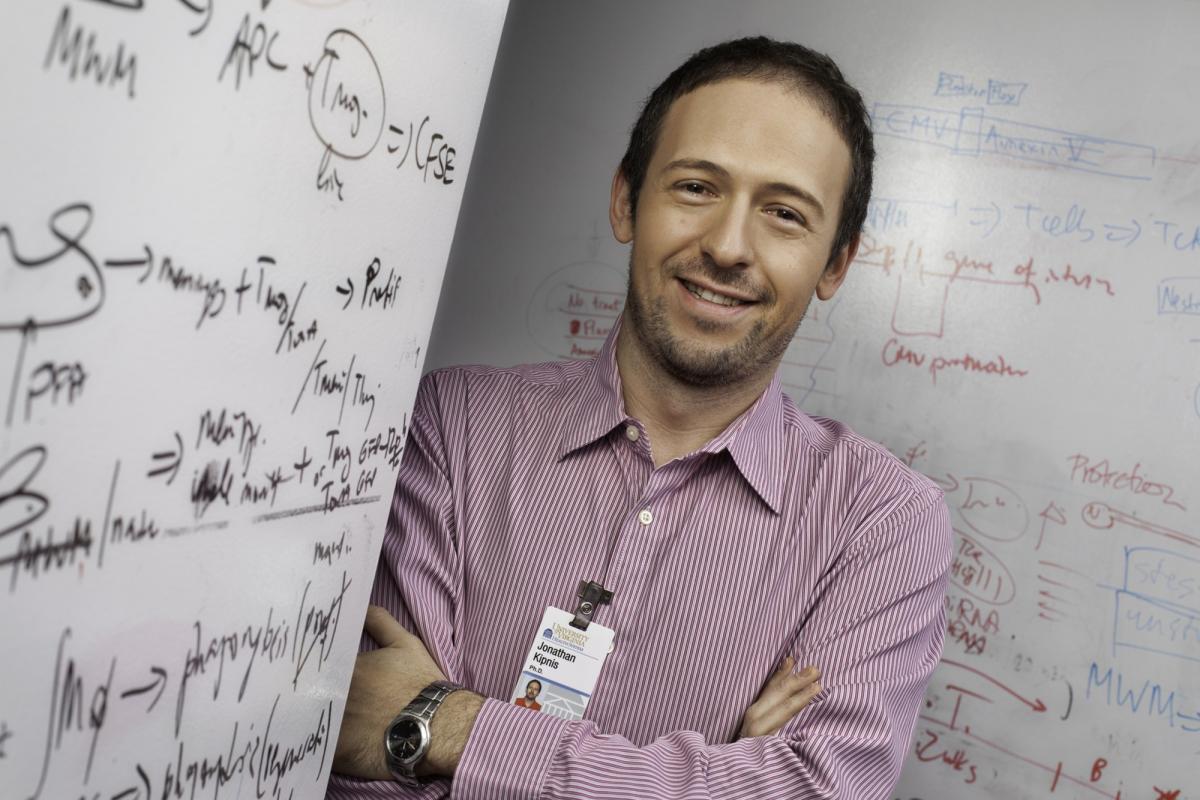In the Spotlight: Jonathan Kipnis, PhD
Rethinking a Neurological Disease
In 2015, Jonathan Kipnis’ research team made a discovery that overturned decades of textbook teaching. They discovered that the brain and the immune system are directly connected through lymphatic vessels long thought not to exist.
Kipnis—Harrison Distinguished Professor, chair of the Department of Neuroscience, and director of the Center for Brain Immunology and Glia (BIG)—and his team began exploring the implications of the finding and discovered numerous immune cells in the protective tissue around the brain. These cells play a critical but previously underappreciated role in battling neurological diseases.
“Not only are these immune cells present in the areas near the brain, they are integral to its function,” he explains. “When the brain is injured, when the spinal cord is injured, the recovery is much, much worse without them.”
UVA scientists theorize that if you can harness the cells’ power, a number of treatment options for neurological disease and injury open up. Take Alzheimer’s disease. Normally, lymphatic vessels remove collections of proteins that can form in the brain. But, if immune cells are dysfunctional, the vessels do not work properly either. If the vessels are not working, the “chunks” cannot be digested. If we can understand how to “unclog” the vessels, we could possibly restore memory function.
The connection also gives scientists a new place to look when investigating immune attacks experienced by patients with multiple sclerosis. Kipnis and his team suspect the cells may be important in the development and progression of numerous neurological and cognitive disorders. They also demonstrated that the immune system directly affects, and even controls, social behavior—a finding that could one day revolutionize treatment for autism spectrum disorder and schizophrenia.
Speeding Discovery
Under Kipnis’s direction, UVA’s Department of Neuroscience will build capacity in neuroimmunology and neurodegenerative diseases. UVA’s strengths in these areas have already made rapid developments possible. Philanthropy is essential to moving these discoveries from concept to the clinic.
“Private support helps us build fruitful collaborations across the University,” Kipnis says. “It provides vital resources that help us attract star faculty and fellows and speeds exciting research. It helps investigators explore their ideas and follow their passions. Most importantly, to keep up with ‘tomorrow’s science’ we need ‘tomorrow’s equipment,’ which is often only possible through philanthropic support.”
“There are so many things we still do not know. I believe that to do good science, you have to be passionate. If you are passionate in your work, it will lead to something great.”

